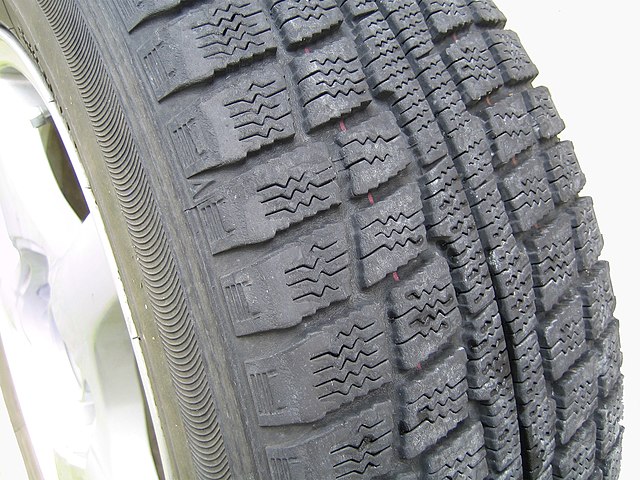Industry News
CAFC Wades Into Complex Intersection of Customs and Countervailing Duties
TweetFeb. 8, 2023
By:
Ashley J. Bodden
In Acquisition 362 v. United States, the Court of Appeals for the Federal Circuit (CAFC) again waded into the intersection of the AD/CVD law and Customs law. Specifically, the court ruled that a protest of a U.S. Customs and Border Protection (Customs) decision must be filed within 180 days of liquidation. This is not a novel decision, but as always in AD/CVD cases with Customs, the details are crucial.
 In 2016, Acquisition imported several entries of tires from the People’s Republic of China manufactured by Shandong Zhongyi Rubber Co., Ltd. (“Shandong Zhongyi”), and was subject to a CVD order. Shandong Zhongyi requested an administrative review of the CVD order and such a review was started. However, before the review was complete, Shandong Zhongyi withdrew.
In 2016, Acquisition imported several entries of tires from the People’s Republic of China manufactured by Shandong Zhongyi Rubber Co., Ltd. (“Shandong Zhongyi”), and was subject to a CVD order. Shandong Zhongyi requested an administrative review of the CVD order and such a review was started. However, before the review was complete, Shandong Zhongyi withdrew.
In the wake of the withdrawal, Customs, following the Commerce Department’s instructions to liquidate entries of companies not under review, liquidated Shandong Zhogyi’s entries as entered. Following the Amended Final Results of the Review, Acquisition filed protests against Customs’ failure to refund the difference between the 30.61% rate it had deposited and the 15.56% “non-selected companies under review” rate.
The root of Acquisition’s argument appears to be that Shandong Zhongyi is, in fact, the same company as Dongying Zhongyi Rubber Co., which remained subject to the review and received the lower rate. Without addressing the merits of that claim, Customs denied the protests as untimely because they were filed more than 180 days after the liquidations of the relevant entries. The Court of International Trade (CIT), also without addressing the merits, dismissed the complaint for lack of subject matter jurisdiction because Acquisition did not file timely protests of the liquidations of the entries pursuant to 19 U.S.C. § 1514. This appeal followed.
First, the Court addressed Acquisition’s argument that because Shandong Zhongyi and Dongying Zhongyi are allegedly “identical” companies, and there was no withdrawal for Dongying Zhingyi there was “no basis for protest” until the Amended Final Results were issued. Without addressing the claim that the companies are “identical” the court simply noted that absent a timely protest of a protestable issue, liquidations are final. Thus, failure to protest within 180 days deprived the company of jurisdiction.
Second, Acquisition argued that the 180-day protest deadline was triggered by Customs’ denial of its refund request under § 1514(a)(2) rather than liquidation. The court rejected this argument as well, indicating that “in general, duties are finally determined by liquidation. The date of liquidation is the applicable date under § 1514(c)(3) for filing a protest to the rate or amount of those duties. There is no other 'date of the decision as to which protest is made.”
Third, Acquisition argued that the Shandong Zhongyi liquidations should not have occurred because the entries should have been suspended as entries of Dongying Zhongyi. The court was not persuaded by this argument, noting that Acquisition could have, and should have, protested the liquidation of the Shandong Zhongyi entries as a misapplication of the Commerce instructions. Having failed to file that protest, the court found no basis for jurisdiction on the facts presented.
Finally, the court rejected a motion to allow Acquisition to plead a basis of jurisdiction not requiring a protest. 28 U.S.C. 1581(i) is a “catch all” provision that allows plaintiffs to have jurisdiction when no other basis applies (and the plaintiff has suffered an appropriate harm). The court reiterated the general rule that 1581(i) may not be used if another basis of jurisdiction would have been available. Here, the protest basis was available, which foreclosed use of 1581(i).
This case is an important reminder of several things. First, it is important to keep track of liquidations for your entries, even if they are subject to suspension. Second, it is important to identify decisions Customs is making on its own judgment (which may be protestable) and those made administratively following the directions of another agency (which may not be protestable). The remedies for each are different. Third, it is vital to closely coordinate with foreign suppliers in AD/CVD matters. After all, the U.S. importer bears the consequences of any decisions made by the supplier. From the court decision it is not clear why one supplier would have imported under two names, or why one of them would have withdrawn from the review. It is possible that the issue could have been avoided entirely had there simply not been a withdrawal.
If you have any questions about managing AD/CVD matters, challenging AD/CVD decisions, filing a protest, or any other questions regarding liquidation of imported goods, do not hesitate to contact any attorney at Barnes, Richardson & Colburn.
